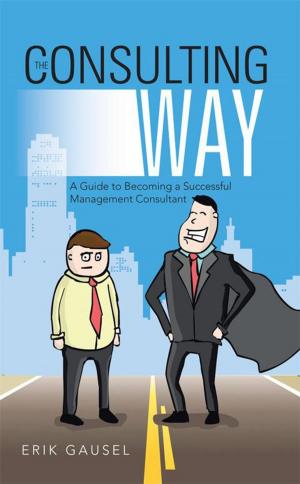Web Based Corporate Institutes
A Solution for Unfinished Defense Industry Acquisitions
Business & Finance, Economics, Consolidation & Merger, Management & Leadership, Management| Author: | T.H. Henning | ISBN: | 9780595832620 |
| Publisher: | iUniverse | Publication: | April 3, 2006 |
| Imprint: | iUniverse | Language: | English |
| Author: | T.H. Henning |
| ISBN: | 9780595832620 |
| Publisher: | iUniverse |
| Publication: | April 3, 2006 |
| Imprint: | iUniverse |
| Language: | English |
"In medieval times, stone castles dotted the countryside of Europe. They attracted itinerant merchants and craftsmen who would wander from castle to castle selling their labor, products, and services. When wars occurred between the castle rulers which resulted in one castle taking over another, it was a common practice of the time to plunder the castles treasures, take prisoners, and scatter the occupants of the enemy castle throughout the countryside. Today, corporate castles of steel and glass dot the countryside of many modern nations. Itinerant professional college students and workers wander from corporate castle to corporate castle seeking employment much as their ancestors might have done during the middle ages. When modern economic wars between castles occur and one corporate castle takes over another corporate castle, the assets of the acquired corporation are taken over and the occupants of the former corporation are either incorporated into the new corporation or laid off."
-T.H.Henning, From Web Based Corporate Institutes
Defense industry and commercial industry corporate executives who are searching for strategies and solutions to better manage people in multicultural corporations may find a solution in Web Based Corporate Institutes. The case for developing a web based corporate institute as one way to resolve human resource development issues is thought provoking and insightful. The author provides highlights from his experience at International Business Machines Corporation, Loral Corporation, Lockheed Martin Corporation, Litton Industries TASC (now a division of Northrop Grumman), and Veridian (recently acquired by General Dynamics).
"In medieval times, stone castles dotted the countryside of Europe. They attracted itinerant merchants and craftsmen who would wander from castle to castle selling their labor, products, and services. When wars occurred between the castle rulers which resulted in one castle taking over another, it was a common practice of the time to plunder the castles treasures, take prisoners, and scatter the occupants of the enemy castle throughout the countryside. Today, corporate castles of steel and glass dot the countryside of many modern nations. Itinerant professional college students and workers wander from corporate castle to corporate castle seeking employment much as their ancestors might have done during the middle ages. When modern economic wars between castles occur and one corporate castle takes over another corporate castle, the assets of the acquired corporation are taken over and the occupants of the former corporation are either incorporated into the new corporation or laid off."
-T.H.Henning, From Web Based Corporate Institutes
Defense industry and commercial industry corporate executives who are searching for strategies and solutions to better manage people in multicultural corporations may find a solution in Web Based Corporate Institutes. The case for developing a web based corporate institute as one way to resolve human resource development issues is thought provoking and insightful. The author provides highlights from his experience at International Business Machines Corporation, Loral Corporation, Lockheed Martin Corporation, Litton Industries TASC (now a division of Northrop Grumman), and Veridian (recently acquired by General Dynamics).















